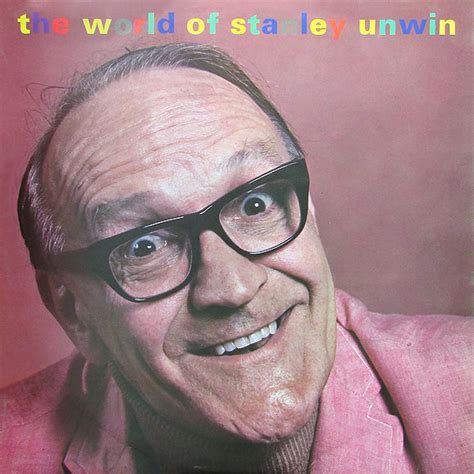A Quote by Stanley Unwin
Your book may be a masterpiece but do not suggest that to the publisher because many of the most hopeless manuscripts that have come his way have probably been so described by their authors.
Related Quotes
You are carrying a masterpiece hidden within you, but you are standing in the way. Just move aside, then the masterpiece will be revealed. Everyone is a masterpiece, because God never gives birth to anything less than that. Everyone carries that masterpiece hidden for many lives, not knowing who they are and just trying on the surface to become someone. Drop the idea of becoming someone, because you are already a masterpiece. You cannot be improved. You have only to come to it, to know it, to realize it. God himself has created you; you cannot be improved.
Maybe just as many women writers as male writers could be billed as the next great American writer by their publisher. Maybe book criticism sections could review an equal amount of female and male writers. Maybe Oprah could start putting some books by women authors in her book club, since most of her audience is women.
The most obvious – and easiest! – way to gain perspective is to put your work away for a while.
The truth is, we don’t know how taking a break frees up the mind, but it does: Somehow it freshens our little neurons, or perhaps it prompts the brain to create more cleverness molecules.
If you can bear to let a short piece sit a week and a book-length work a month, do so. Longer is fine, too; some authors have abandoned manuscripts for years before unearthing them and realizing, ‘Hey, this isn’t bad,’ and renewing their energy for the project.
What is striking is that from almost from the very beginning of certainly by September and October of 1963, as the book was being constructed, that [Alex] Haley was vetting - asking questions to the publisher and to the publisher's attorney regarding many of the things that Malcolm X was saying. He was worried that he would not have a book that would have the kind of sting that he wanted.
There are some works which the authors must consign unpublished to posterity, however uncertain be the event, however hopeless be the trust. He that writes the history of his own times, if he adhere steadily to truth, will write that which his own times will not easily endure. He must be content to reposite his book till all private passions shall cease, and love and hatred give way to curiosity.
I myself discovered many authors through school reading lists and through school anthologies. The positives are: young readers can find the world opening up to them through books they study. The negatives may include bad experiences kids have - if they don't like the book or the teacher, or the way the book is taught.
As soon as I finished 'The Finkler Question,' I was in despair. I'd changed my English publisher because they'd been lukewarm about it and not offered enough money. The American publisher didn't like it. The Canadian publisher didn't like it... I'd been bleeding readers since my first novel, and I could see my own career going down.
Even though artists of all kinds claim to put their hearts and souls into their works, it will only confuse you, for example, if you try to discern a painter by his paintings. His masterpiece may be the master because of its iridescence; it may display a hundred different perspectives through his single face.
I think I've learned over the years, because you'd have to be stupid not to, that when a book publisher gives you a deadline they're just kidding for the most part. I don't know what they do with it, it's like you send them your book and they just hold it in their hands for like six months and I don't know why, and you realize you probably had more time.
Alexandros of Antioch took a block of marble and chiseled away from it everything that was not his masterpiece, the Venus de Milo. If you will chisel away one fault from your character every day, you may discover - a) that you're actually a statue of Margaret Thatcher. b) that you're still just a block of marble. c) that there are pigeon droppings on your shoes. d) that you, too, are a hidden masterpiece.
The real hopeless victims of mental illness are to be found among those who appear to be most normal. Many of them are normal because they are so well adjusted to our mode of existence, because their human voice has been silenced so early in their lives that they do not even struggle or suffer or develop symptoms as the neurotic does. They are normal not in what may be called the absolute sense of the word; they are normal only in relation to a profoundly abnormal society.


































